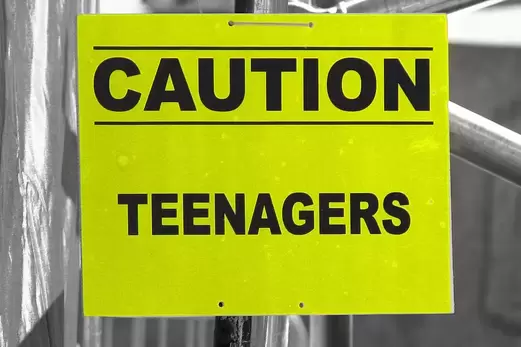WHICH CAME FIRST THE CHICKEN OR THE EGG

Consider parents first.
Parents can become impatient with waiting: “Will you hurry up!”
Parents can become impatient with teaching: “You’re not concentrating!”
Parents can become impatient communicating: “Pay attention to what I say!”
Parents can become impatient with mistakes: “Why can’t you do it right?”
Parents can become impatient with argument: “I don’t want to debate!”
Then there’s the adolescent.
Teenager can become impatient with delay: “I need to know right now!”
Teenager can become impatient with questions: “I’ve already told you!”
Teenager can become impatient with attention: “Leave me alone!”
Teenager can become impatient with advice: “I didn’t ask you!”
Teenager can become impatient with restraints: “You never let me!”

The words teenager and patience are rarely uttered in one sentence. Adolescents are well-known for being irritable, impulsive, and craving instant gratification. It is not because of hormones or that teens like to “act up.” It is simply because the structural connections inside their emotional center of the brain, are still developing, limiting their ability to think ahead about the consequences of their actions.
FOCUS ON THOUGHTS AND BEHAVIOUR, NOT FEELINGS
If your child doesn’t know how to get along with people, they might try to control you through behavior, manipulation, and dishonesty. And if you ask them what they feel, they won’t answer—or they’ll become more aggressive.
That’s because they genuinely don’t know how they feel. Their feelings are often so uncomfortable that they won’t acknowledge them in the first place. That’s why it’s essential to focus on thoughts and behavior, not feelings.
If you get your thoughts and behavior under control, your feelings will generally improve. It’s why most behavioral psychologists teach you to act and think differently to improve your mood and feelings. Contrary to popular belief, behavioral psychologists don’t tell you to “get in touch with your feelings.” Rather, they tell you to change your thinking so that your feelings improve.